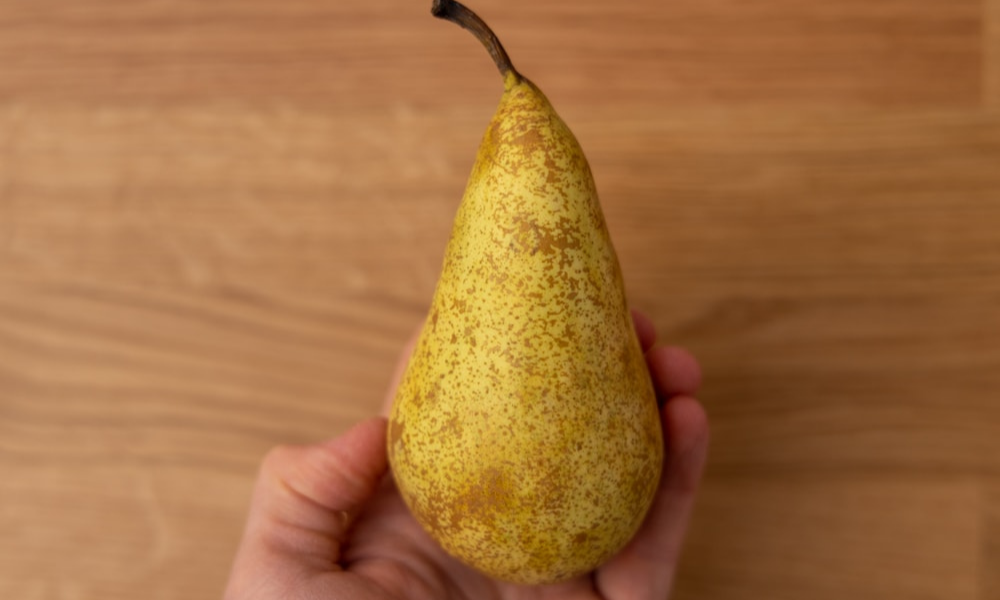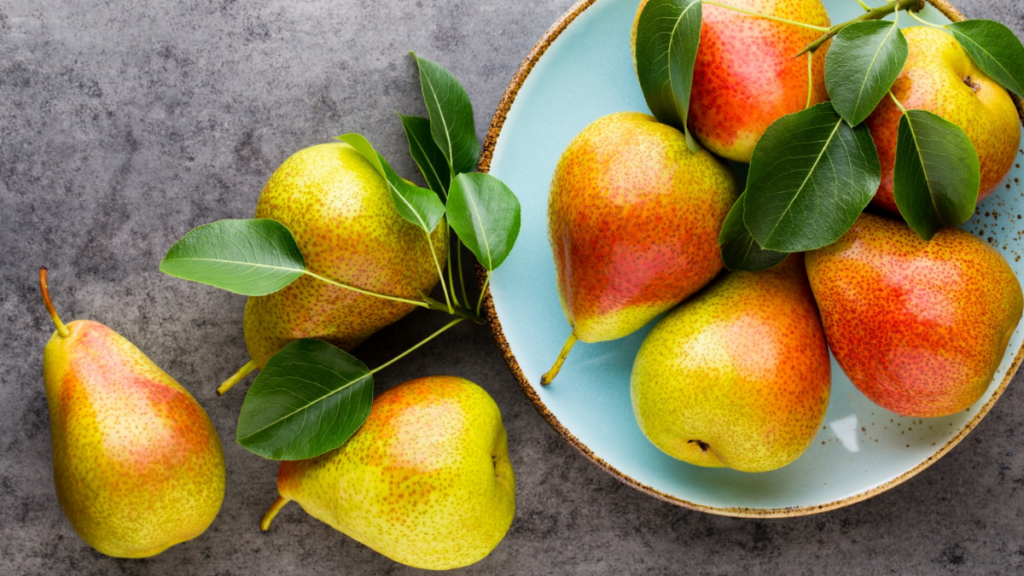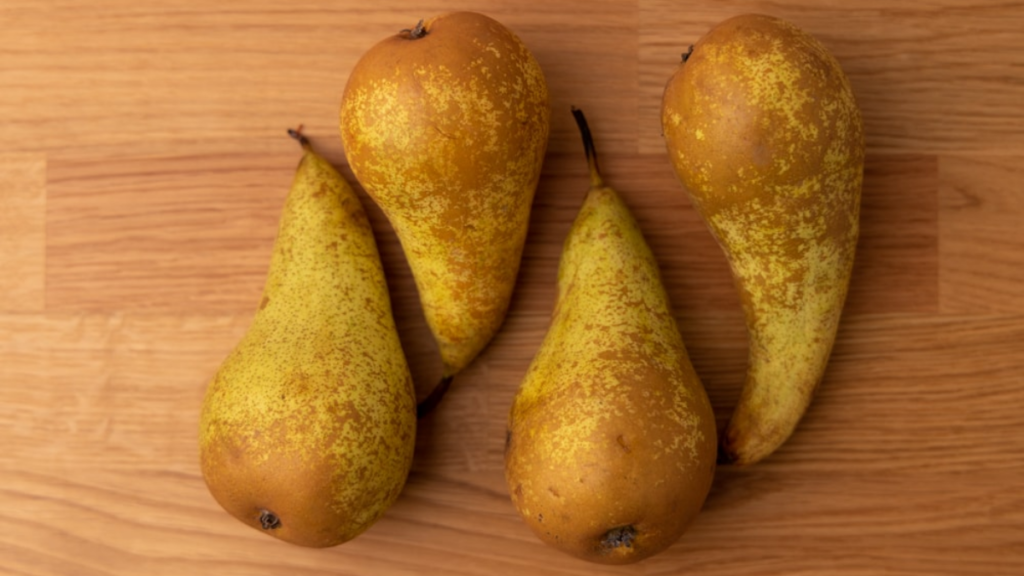There are several ways to determine if a pear has gone sour. The first method involves examining the color of the flesh. If the color has changed from light brown to dark brown or black, it is rotten and should not be eaten. They are not as sweet or crisp as other pear varieties, but they can be eaten when ripe and soft enough. Due to their firm acidity can produce stomachaches, indigestion/heartburn, or nausea when unripe and excessively firm. To know how to tell if pear is bad, read further.
Everything in the world comes to an end at some point or under certain circumstances. The expiration date is generally printed on the packaging of fruits. However, there are situations when you are unaware of the expiration date. So, how do you determine if your pears are about to go wrong or are already bad? To that end, we’ve compiled a list of a few methods or indicators that will assist you in determining the current state of your pears.
Pears that have been chopped into pieces have a one-day shelf life at room temperature but three days in the refrigerator. The whole pear can last for 5 to 12 days if not cut. On the other hand, frozen pear can last up to 6 months. As a result, the chilly temperature plays a vital role in the long life of the pear.
What is Exactly Pear?
Pears are a type of fruit that grows on trees and is harvested in the Northern Hemisphere from late summer to early October. The pear tree and shrub belong to the genus pyros, which belongs to the rosacea family and bears the same-named pomaceous fruit. Pears are grown for their edible fruit and juices in some species, while others are grown as trees. The tree is small and native to Europe, North Africa, and Asia’s coastal and slightly temperate regions. pear wood is one of the most popular materials for making high-end woodwind instruments and furnishings.
How to Tell if Pear is Bad?
Here are some most accessible signs to tell that pear is gone bad:
Presence of Spots
When you look at your pears, you can determine whether they’re rotten. There will be patches all over the skin if it has several brown bruises or blemishes. If you see this sign, toss them out.
When the Skin is Too Soft
If you press your thumb on the pear and it pierces the skin, That’s not a promising omen. You may not realize the pear is terrible until you cut it open and discover the center is squishy and brown. To avoid putting your health at risk, toss any fruits with soft skin.
Pears Change Color
When their color changes or deteriorates, they are no longer healthy. If the color changes from the original, toss it and get a new one.
Off Smell
Typically, the flavor of this magnificent fruit is intense, which makes it more enticing to eat. However, when they go off, they emit a foul odor. Imagine having a nice meal at night, only to have your excrement turn rotten in the morning. If they have a terrible odor, toss them out and purchase a new one.
Presence of Mold in Pears
This is a very concerning situation with pears; this creature must have come to feed on them. They can hurt the human body if you bite them when this happens. Throw out any noticeable mold and replace them with a mold-free one.
How to Store Pears?
Pears are a well-known fruit in every country due to their health benefits and delectable flavor. If you want to buy one and keep it for more than a day, you’ll need to know how to store pears safely. It is critical to store your pears for their health care. It might last a long time or spoil rapidly, depending on how you store it. We’ll go over a couple of different storage options here. Let’s have a look at it.
Keep at Room Temperature
If you plan on eating your pears within a day or two, keep them at room temperature. Furthermore, if the pears are not quite ripe, place them in a paper bag alongside a ripe apple or banana and keep them at room temperature until they darken in color, indicating that they are ripe.
In Refrigerator
If purchased from the market, keeping ripe pears at room temperature is not good, and refrigeration is the best option. If you wish to keep pears for more than a couple of days, you can store them in the refrigerator to preserve their texture and freshness.
Freeze It
Freezing is another method of storing most fruits to extend their life or make them last longer. You can cut them into slices and freeze them, but there is a more advanced freezing method that we’ll go over later. To learn more about it, read the article.
Away From Direct Sunlight
Leaving your pears in direct sunlight might cause them to grow overheated, which is terrible for them and can eventually cause them to spoil.
How Long Do Pears Last in the Freezer?
Pears can be stored in the freezer for 10 to 12 months before going bad if appropriately stored under the right circumstances. The freezer time indicated is just for the best quality pears. That you can keep frozen at 0°F for an infinite period. To extend the life of your pear, put it in the refrigerator. It’s convenient to freeze them because it keeps them fresh. The best part is that your pear stays fresh and does not spoil quickly.
How to Keep Pears in Container?
If you aren’t planning on using your pear right away, make a note of it when you buy it. To extend the shelf life of your fruits and vegetables, choose those that haven’t yet ripened. Alternatively, you can acquire a fresh pear to extend the shelf life. Another component that can obstruct the oxidation process is sodium chloride.
If you’re afraid of making it overly salty, use less salt. Alternately, you can soak them in saltwater for a while. To avoid the salt flavor in the fruits, rinse them under running water once they’ve been soaked. Keep your pears on a plate on the counter while waiting for them to ripen. They’re piled side by side rather than stacked to avoid bruising.
Conclusion
Pear is a popular fruit due to its fresh, sweet flavor, the convenience of eating (no peeling required), low waste creation, and high nutritional content. The popular Anjou, Bosc, Comice, and Bartlett types of fresh pears are among the most popular. The pear’s skin can be yellow, brown, green, or red. Any fresh fruit with broken skin or bruising should be avoided.
Do you know that pears provide a wide range of nutritional benefits? They aid in the body’s day-to-day functions, such as maintaining a healthy heart and losing weight. Phytochemicals in this supplement may aid in the fight against cancer and promote a healthy gut. Pears are a delicious fruit to consume if you have diabetes because they are low in sugar. Several studies show that their nutritional benefits might help you manage the illness. Pears also have a low glycemic index, which won’t spike your blood sugar. Avoid foodborne illness by keeping your fruits secure if you notice any signs of rotting.


